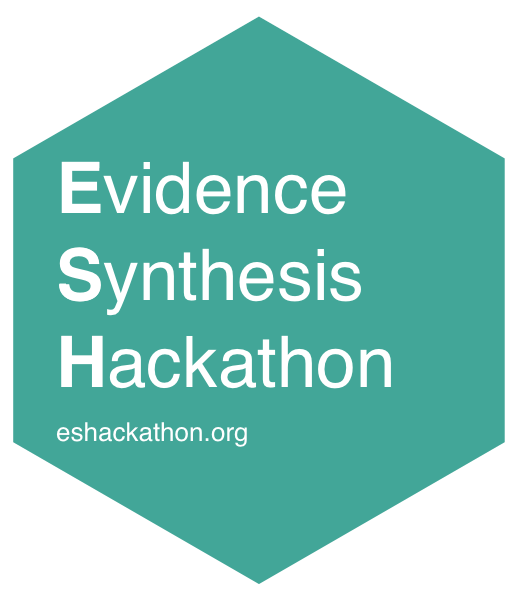Online 2020 | Discussion
The Evidence Synthesis Technology world can be complicated - tools can be hard to find, it can be difficult to know what skill level is needed, and they can involve a considerable learning curve. Here at ESH, we are trying to lower the costs associated with finding, learning and using new ESTech tools and frameworks. This blog series aims to introduce key tools that can help increase transparency, accessibility, efficiency and rigour in evidence syntheses. Each month, a member of the ESH family will introduce their ESTech, explaining its purpose, the background skills needed, and how it can be used to support evidence synthesis.
Evidence Synthesis training resources | Ongoing project
Training resources for evidence synthesis are disparate and often hard to find. This project aims to collate and catalogue training resources for evidence synthesis methods from across disciplines, sectors, sources and formats, making it easier to find the right training. The result will be a web-based user-support tool.
ESMARConf | Evidence Synthesis and Meta-Analysis in R Conference
ESMARConf is a FREE, online annual conference series dedicated to evidence synthesis and meta-analysis in R. Our aim is to raise awareness of the utility of Open Source tools in R for conducting all aspects of evidence syntheses (systematic reviews/maps, meta-analysis, rapid reviews, scoping reviews, etc.), to build capacity for conducting rigorous evidence syntheses, to support the development of novel tools and frameworks for robust evidence synthesis, and to support a community of practice working in evidence synthesis tool development. ESMARConf began in 2021 and is coordinated by the Evidence Synthesis Hackathon.
ESTech special series | Special series of published papers
As the appreciation and need for timely and rigorous evidence synthesis continue to grow, so too will the need for tools and frameworks to conduct reviews of expanding evidence bases in an efficient and time-sensitive manner. Efforts to future-proof evidence synthesis through such Evidence Synthesis Technology (ESTech) have so far been isolated across interested individuals or groups, with no concerted effort to collaborate or build communities of practice in technology production.
An assessment of data and code availability in reviews | Ongoing project
Transparency is vital for repeatability and verifiability of systematic reviews, as with all other research. Authors of quantitative systematic reviews (i.e. ones that include meta-analysis) can maximise transparency by publishing the data they collected and the analytic code describing and documenting their analyses. This project will conduct a map of evidence syntheses to assess the degree to which data and code used in meta-analyses are made public by authors and journals publishing systematic reviews in environmental science and healthcare.
Standardised data files for systematic reviews | Ongoing project
Systematic reviews are complex, laborious tasks that produce vast amounts of data. However, the effort required to produce these data are typically lost once a review is completed: some information is reported in the review, but often information is missing or specific details are lacking.
Making primary research synthesis ready | Proposed academic paper
Evidence synthesis relies on primary research that is reliable, transparent, and where key information is readily accessible and useful for broader synthesis. We propose a succinct list of ideal attributes that primary research articles should report as standard so that they are more likely to be found and included in evidence syntheses. We discuss how implementing these changes to primary research reporting might be incentivised for authors, peer reviewers, editors, journals, and institutions such changes and this broad across medicine, environment, ecology, and social science disciplines. We focus on the area of prevention science, but our conclusions are applicable across disciplines and fields.
